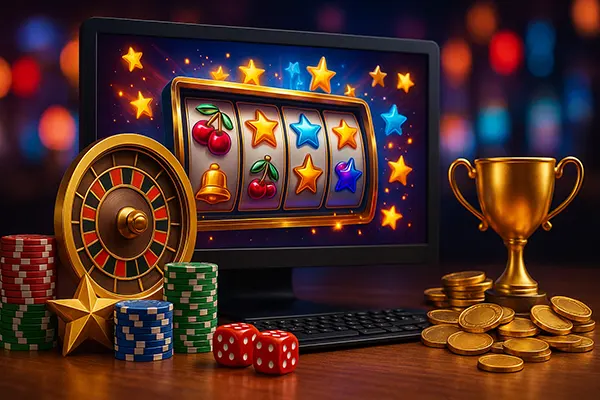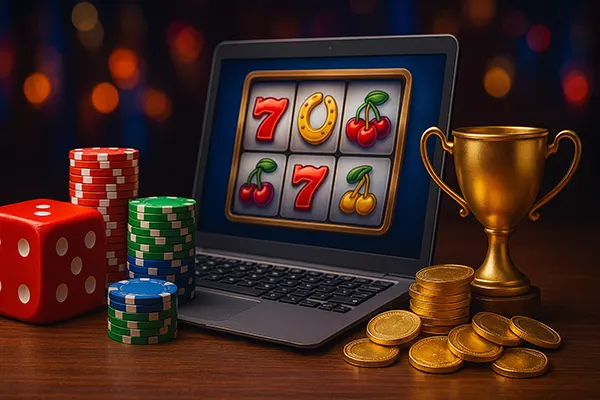Gamification in Casino Platforms: Bonuses, Levels and Missions as Player Retention Tools

Modern online casinos increasingly rely on gamification mechanics to enhance user engagement and foster long-term player retention. By borrowing elements from video games—such as missions, levelling systems, and competitive challenges—these platforms transform gambling into a more interactive and rewarding experience. In 2025, this strategy is more prominent than ever, with major operators introducing sophisticated features aimed at keeping players involved for extended periods.
Levels and Experience Points: Motivating Progress
The implementation of experience points (XP) and levels has become a cornerstone of gamification in online casinos. Each bet placed or task completed contributes to a user’s XP, gradually unlocking higher levels and new rewards. This mechanic mimics progression systems in mobile and console games, tapping into the psychological drive for accomplishment and mastery.
By February 2025, several leading casinos, including Stake and Mr Green, have introduced seasonal XP tracks with tiered level benefits—ranging from bonus spins to personalised cashback offers. These incentives not only reward regular play but also provide tangible goals, encouraging players to return and engage daily.
Additionally, VIP and loyalty programmes are now more often tied to visible levelling systems, making progress more transparent and motivating. The sense of “levelling up” has proven highly effective in reducing churn and extending player lifetime value.
Psychological Triggers Behind Levelling Systems
Levelling up activates core psychological responses, especially the desire for achievement and status. The concept of visible progress feeds into intrinsic motivation, giving players a sense of control and accomplishment, even in games of chance.
This is closely related to operant conditioning, where rewards—like new levels or privileges—follow a specific behaviour. By incorporating small, consistent milestones, casinos keep players invested without relying solely on large wins as motivators.
Furthermore, many platforms now publicly display player levels or ranks on leaderboards, adding a social dimension to progress. This fosters competitiveness and increases time spent on the platform as players strive for visibility and prestige.
Mission-Based Mechanics: From Slots to Quests
Online casinos have shifted towards dynamic mission systems, where players are assigned daily or weekly tasks—such as playing specific games, activating bonuses, or achieving win streaks. These missions provide short-term objectives that break monotony and reframe play as goal-oriented action.
In 2025, operators like Gamdom and Unibet have introduced themed missions tied to events or new game releases. For example, Valentine’s Day missions may reward players for engaging with love-themed slots or reaching a given number of spins.
The complexity of these missions has also increased, with multi-step challenges and narrative progressions resembling RPG-style quests. This evolution mirrors game design techniques, creating depth and narrative hooks that increase session time and platform stickiness.
Behavioural Economics and the Role of Micro-Tasks
Micro-tasking strategies—where users complete simple but frequent actions for small rewards—leverage behavioural economics principles like the endowment effect and sunk cost fallacy. Once players begin a task chain, they’re more likely to continue to avoid the feeling of wasted effort.
Missions reduce reliance on random outcomes, offering guaranteed paths to rewards and thus lowering frustration. This structured engagement model promotes a feeling of agency and encourages routine platform visits.
By incorporating countdown timers, progress bars, and mission calendars, casinos effectively mimic productivity tools, turning gameplay into a habit loop. The visibility of progress and time-limited nature of tasks add urgency and enhance the perceived value of rewards.

Player Battles and Social Competitions
Player-vs-player (PvP) features, such as slot tournaments and betting competitions, are growing rapidly. These mechanics introduce social gamification elements, letting users compare performance and compete for prizes in real time.
Casinos like Duelbits and BC.Game have made significant strides in PvP gamification by integrating leaderboards and live statistics. These platforms allow users to challenge friends or join global contests based on wagering volume, win multipliers, or mission completion speed.
This sense of rivalry encourages players to engage more frequently and bet strategically to climb the rankings. Combined with daily prize pools and season-long competitions, such features transform solitary gambling into a multiplayer experience.
The Power of Social Validation and Peer Dynamics
Social features in gamified casinos tap into the universal human need for validation and connection. Seeing one’s name on a public leaderboard or receiving badges for achievements activates dopamine responses linked to recognition.
Peer dynamics also fuel player retention. Users are more likely to return to maintain their rank, defend their title, or catch up with peers, reinforcing regular interaction with the platform.
Group events—such as team missions or community challenges—further strengthen these ties. By collaborating towards shared goals, players develop a sense of belonging, which is often absent in traditional casino environments.
